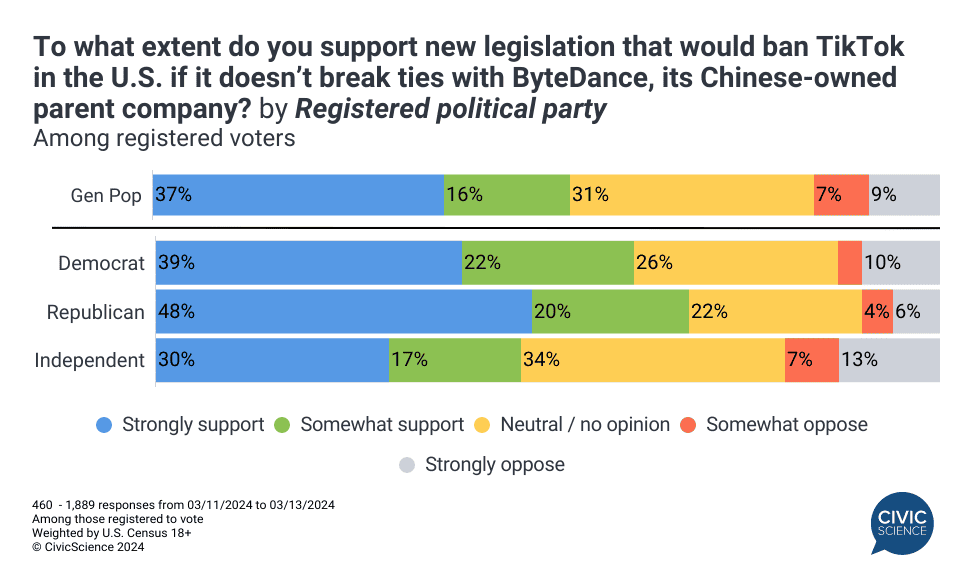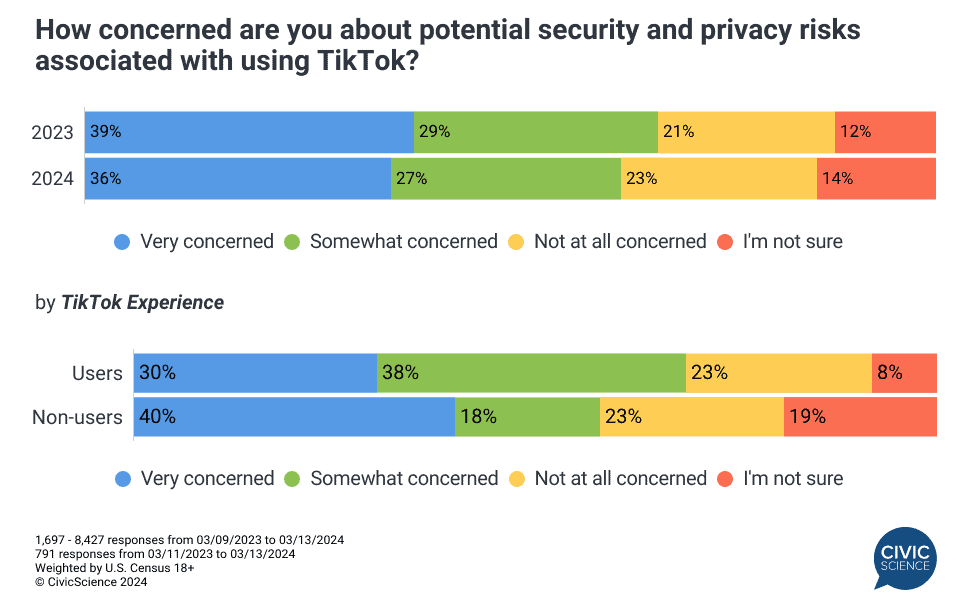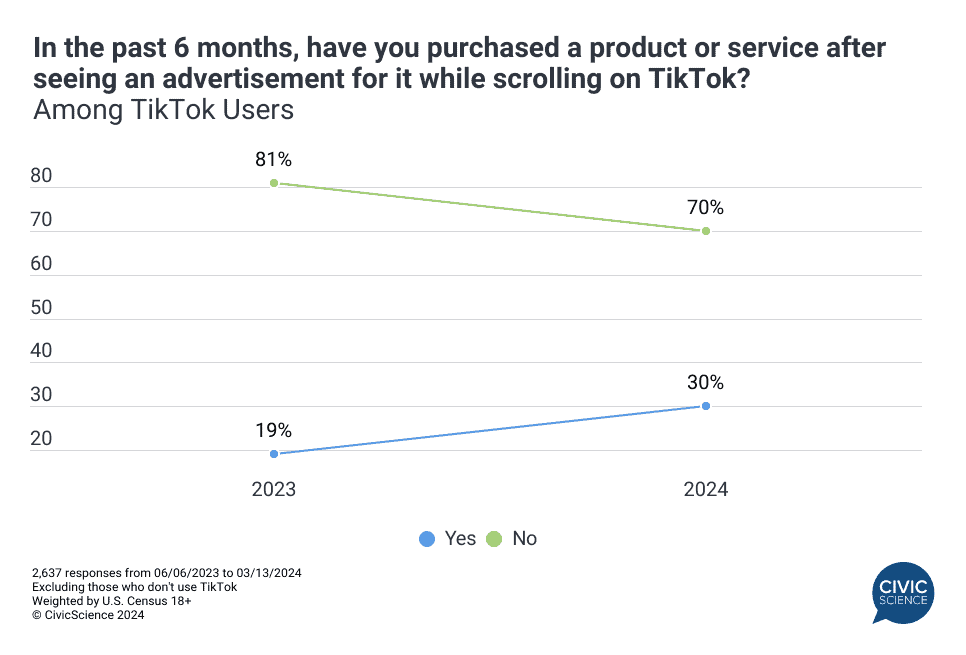Congressional efforts to pass legislation to confront security and privacy concerns surrounding the social media app TikTok have been underway for some time now. Although the previous attempt stalled amidst other more pressing issues, the effort has been renewed as the House has now passed the Protecting Americans from Foreign Adversary Controlled Applications Act by a strong bipartisan majority. If enacted into law, it would mandate ByteDance, TikTok’s Chinese-owned parent company, to divest within six months or risk removal from U.S. app stores and web hosts. Its path in the Senate is uncertain.
Similar to the previous movement to target TikTok, the majority (53%) of U.S. adults support the new legislation being considered, including 37% who ‘strongly’ support it. Conversely, just 16% oppose the move, while 3-in-10 hold a neutral stance.
Despite TikTok’s popularity among younger generations, nearly half of Gen Z adults back the proposal, while as much as 68% of adults aged 55+ are in favor. Millennials show the least support while Gen Z adults are most likely to oppose the effort (22%), slightly outpacing Millennials (21%).
Among registered voters, Republicans are most likely to support the measure, followed closely by Democrats. Independents, on the other hand, are more likely to say they oppose the bill.

Cast Your Vote: Do you think it’s likely or unlikely that TikTok will be banned in the US?
The risks associated with using TikTok are at the heart of this renewed effort to force a sale away from Chinese ownership, but how much of an issue is this really for Americans? The latest CivicScience data show that just under two-thirds (63%) of Americans are at least somewhat concerned about security and privacy risks when using TikTok. That said, this percentage has actually fallen by five percentage points since last year. Those who aren’t concerned at all bumped up by two points in a corresponding shift.
When gauging how TikTok users feel about these concerns, additional data reveal that they are more likely than non-users to harbor anxieties around security and privacy on the app – users are 10 points more likely than non-users to say they’re at least ‘somewhat’ concerned.

The path from bill to an actual TikTok ban is winding and far from certain. Still, there would be significant implications should a ban happen. Not only is TikTok a source for entertainment, musicians, and musical discovery, but many businesses also rely on TikTok for sales through advertising or TikTok Shop.
CivicScience data show the influence of advertising on TikTok has surged this year – 3-in-10 TikTok users say they’ve made a purchase after seeing an ad on TikTok in the past six months, marking an 11-percentage-point increase from last year. The momentum and scale of this advertising ecosystem could be challenging to replicate should a ban come to fruition.

Where would businesses be best suited to consider transitioning to a hypothetical post-TikTok world? Further polling shows TikTok users say they would most likely turn to Facebook (33%), YouTube (24%), or Instagram (21%), with X coming in a distant fourth (10%).
Take Our Poll: Have you ever bought something you saw on TikTok?
Lawmakers and the White House are adamant that this legislation is not intended to impose a ban but rather to address pressing security concerns surrounding apps like TikTok, an issue that data clearly show Americans are apprehensive about. However, should this legislative process ultimately result in a ban, can businesses find ways to compensate for any lost sales and marketing efforts before it takes effect?
CivicScience clients have access to over 500K ongoing and crossable polling questions which they can use to see how consumers respond to breaking news and detect trends before they happen. See it in action.








